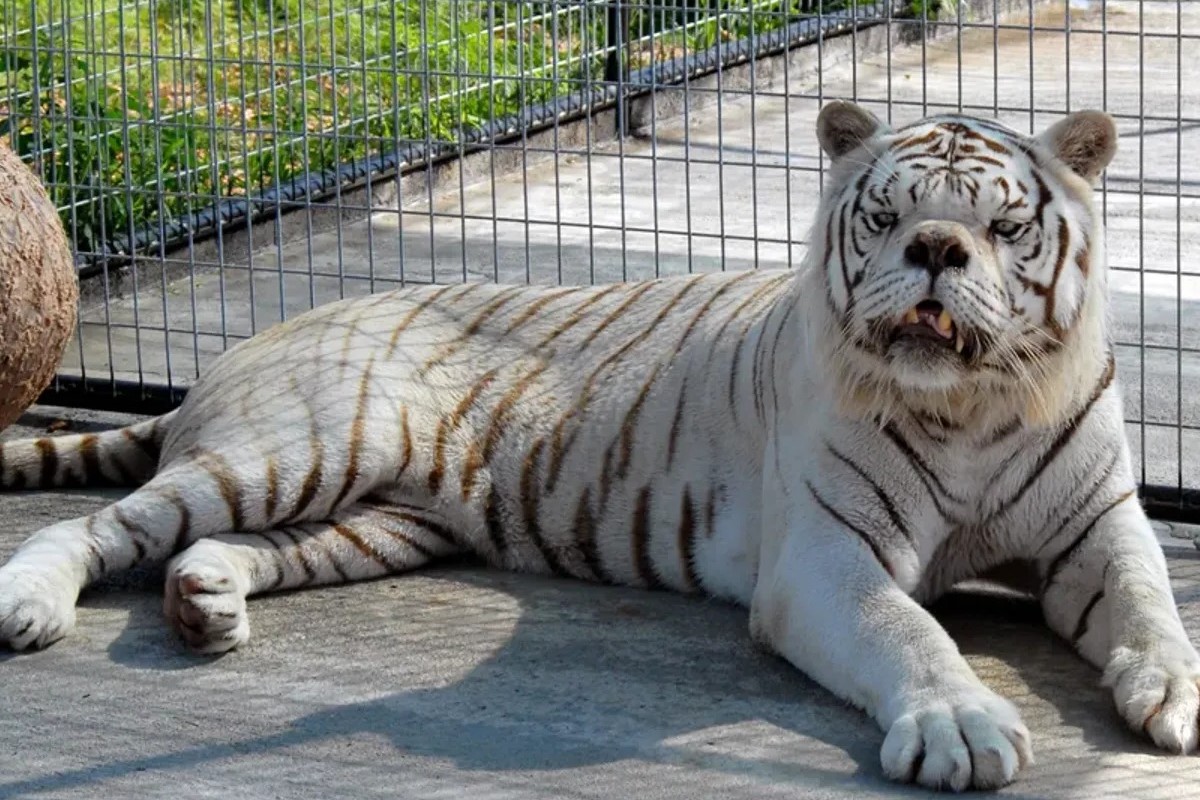
Did you know that animals can have Down Syndrome too? While Down Syndrome is a genetic condition commonly associated with humans, some animals can exhibit similar traits. This condition results from an extra chromosome, leading to developmental and physical differences. In animals, it manifests in unique ways, affecting their appearance and behavior. From lions to tigers, and even our beloved pets like dogs and cats, these animals show us that diversity exists in the animal kingdom too. Understanding Down Syndrome in animals not only broadens our knowledge but also fosters empathy and compassion towards all living beings. Let's dive into some fascinating facts about Down Syndrome in animals!
Understanding Down Syndrome in Animals
Down syndrome is a genetic disorder that affects humans, but what about animals? While animals can't have Down syndrome exactly like humans, they can have similar genetic conditions. Let's explore some fascinating facts about Down syndrome-like conditions in animals.
Genetic Conditions in Animals
Animals can have genetic disorders that resemble Down syndrome. These conditions can affect their appearance, behavior, and health.
- Down syndrome in humans is caused by an extra chromosome 21.
- Animals can have chromosomal abnormalities, but they differ from human Down syndrome.
- Cats can have a condition called feline Down syndrome, which is not the same as human Down syndrome but has similar symptoms.
- Dogs can have genetic disorders that cause physical and mental abnormalities.
- Primates, like chimpanzees, can have trisomy 22, which is similar to human trisomy 21.
Physical Characteristics
Animals with genetic disorders may show physical traits that are similar to those seen in humans with Down syndrome.
- Cats with feline Down syndrome often have wide-set eyes and flattened faces.
- Dogs with genetic disorders may have unusual facial features and body shapes.
- Primates with trisomy 22 can have physical characteristics similar to humans with Down syndrome.
- Some animals may have shorter limbs or smaller heads due to genetic abnormalities.
- Physical traits can vary widely depending on the species and the specific genetic condition.
Behavioral Traits
Genetic disorders can also affect the behavior of animals, making them unique in their own ways.
- Cats with feline Down syndrome may have difficulty with coordination and balance.
- Dogs with genetic disorders might exhibit unusual behaviors or learning difficulties.
- Primates with trisomy 22 can show developmental delays similar to those in humans with Down syndrome.
- Some animals may be more affectionate or social due to their genetic conditions.
- Behavioral traits can be influenced by both genetics and the environment.
Health Concerns
Animals with genetic disorders often face health challenges that require special care and attention.
- Cats with feline Down syndrome may have heart problems or respiratory issues.
- Dogs with genetic disorders can be prone to infections and other health complications.
- Primates with trisomy 22 may have a shorter lifespan due to health issues.
- Regular veterinary care is essential for animals with genetic disorders.
- Early diagnosis and treatment can improve the quality of life for these animals.
Unique Cases
There have been some remarkable cases of animals with genetic disorders that have captured the hearts of many.
- Monty the cat, known for his unique appearance, has a genetic disorder similar to Down syndrome.
- Kenny the tiger, who had a genetic disorder, became famous for his unusual facial features.
- Lil Bub, a cat with multiple genetic anomalies, became an internet sensation.
- Snickers the dog, who has a genetic disorder, is known for his loving personality.
- These animals often become ambassadors for awareness about genetic disorders in animals.
Care and Support
Providing the right care and support can make a significant difference in the lives of animals with genetic disorders.
- Special diets and supplements can help manage health issues in these animals.
- Physical therapy and exercise can improve mobility and coordination.
- Behavioral training can help animals adapt to their unique challenges.
- Support from veterinarians and animal care professionals is crucial.
- Loving homes and dedicated caregivers can provide the best quality of life for these special animals.
Final Thoughts on Down Syndrome in Animals
Understanding Down Syndrome in animals helps us appreciate the diversity of life. While animals don't get Down Syndrome exactly like humans, they can have similar genetic conditions. These conditions can affect their appearance, behavior, and health. Knowing this can improve how we care for pets and wildlife. It also reminds us of the importance of compassion and patience. Animals with genetic disorders need special attention and love. By learning more about these conditions, we can make better choices for their well-being. This knowledge also helps scientists and veterinarians develop better treatments. So, next time you see an animal that looks or acts a bit different, remember they might have a unique genetic makeup. Treat them with kindness and understanding. Every creature deserves a chance to live a happy, healthy life.
Was this page helpful?
Our commitment to delivering trustworthy and engaging content is at the heart of what we do. Each fact on our site is contributed by real users like you, bringing a wealth of diverse insights and information. To ensure the highest standards of accuracy and reliability, our dedicated editors meticulously review each submission. This process guarantees that the facts we share are not only fascinating but also credible. Trust in our commitment to quality and authenticity as you explore and learn with us.


